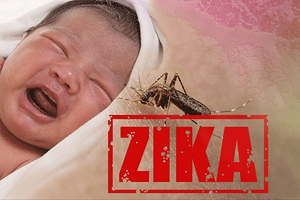New CDC Updates On Zika Virus In Florida
 Florida now has 38 cases of pregnant women that have come into contact with the Zika virus. These numbers jumped in a matter of days from only 9 confirmed cases in the State. The sharp spike in numbers has caused a great deal of concern, but there’s a reasonable explanation behind it.
Florida now has 38 cases of pregnant women that have come into contact with the Zika virus. These numbers jumped in a matter of days from only 9 confirmed cases in the State. The sharp spike in numbers has caused a great deal of concern, but there’s a reasonable explanation behind it.
The Centers for Disease Control and Prevention has changed the way it is counting affected individuals. Instead of only counting those with laboratory symptoms, the CDC and Florida Department of Health are now counting everyone exposed, with or without laboratory symptoms.
The goal of the CDC’s new guidelines is to help better understand the virus and pinpoint the number of children born with birth defects in accordance to parent exposure. Researchers are still trying to put together all of the pieces in regards to the virus and how it impacts humans, particularly pregnant women.
Pregnant women appear to be the highest risk group associated with Zika virus. There is a correlation between becoming infected with the virus during pregnancy and having a child with a birth defect known as microcephaly, which causes an underdeveloped brain and an abnormally small head.
In February, President Barack Obama prompted Congress to grant $1.9 billion to research and combat Zika virus. Senate recently voted on $1.1 billion in emergency funding. Just a couple days the later, the House approved a lower $622 million in funding.
Updated Numbers: Zika Virus In Florida By County
Number of all people with Zika virus in Florida by county as of May 2016 (all travel related):
Alachua: 4
Brevard: 3
Broward: 17
Clay: 2
Collier: 1
Hillsborough 3
Lee: 4
Martin: 1
Miami-Dade: 46
Orange: 9
Osceola: 5
Palm Beach: 7
Pasco: 1
Pinellas: 4
Polk: 3
Santa Rosa: 1
Seminole: 2
St. Johns: 1
Volusia: 2
Number of cases involving pregnant women: 36
Note: These numbers are constantly changing. At the start of June, 5 new travel-related cases have been reported with one in each of the following counties: Hillsborough, Osceola, Palm Beach, and Seminole. Numbers are regularly updated through the CDC government website.
How Many People In The United States Are Infected?
The CDC states that 195 pregnant women living in the United States and its territories, including Puerto Rico, are showing laboratory evidence of possible Zika virus. This number decreases to 146 cases when looking only at US territories. Including all people, not just pregnant women, there are 618 total reported cases associated with travel.
Along with pregnant women, officials are also trying to get a better grasp on the numbers of babies being born with congenital Zika infections. Doctors are being asked to keep careful note of any babies born under their care showing possible implications of Zika.
Symptoms Of Zika: How Do You Know If You’ve Been Exposed?
If you think you have been exposed to the Zika virus and you are pregnant it is always best to see a doctor as soon as possible. Most cases go unnoticed because they produce little to no symptoms. If symptoms do arise they most commonly include a fever, rash, joint pain, and conjunctivitis. The Zika virus can take anywhere from a few days to over a week to present symptoms post-exposure.
If you are pregnant and have traveled to a place where Zika is reported and you experience any of these symptoms within 2 weeks of returning home you should visit a doctor immediately.
Until we understand more about this virus, it’s advised that pregnant women do not travel to areas experiencing Zika outbreaks.
As of now, there are no medicines or vaccines used to treat or prevent Zika. Those diagnosed are advised to get plenty of rest and drink lots of fluids. As well as to take medicine such as Tylenol to help reduce any pain and bring down fever.
Preventing Mosquito Bites & The Spread Of Zika
As summer heats up into full effect, the spread of mosquitos increases. More mosquitos flying around means more risk for contracting the Zika virus. The best thing you can do is avoid mosquito bites.
In order to help prevent the possibility of a bite, layer your exposed skin with sunscreen and then apply an insect repellent over this. In order to do the trick, you’ll need a repellent with the active ingredients DEET, eucalyptus, picaridin, or para-methane-diol.
If you are diagnosed with Zika you should not be around any potential for mosquito bites for at least the first week of infection. Otherwise, if a mosquito bites you, they can transmit the virus to the next human they bite. The virus generally survives around one week in your blood, but in some people it has been noted to remain longer.
Contact Urgent Medical Center with any and all questions concerning Zika virus in Florida.
